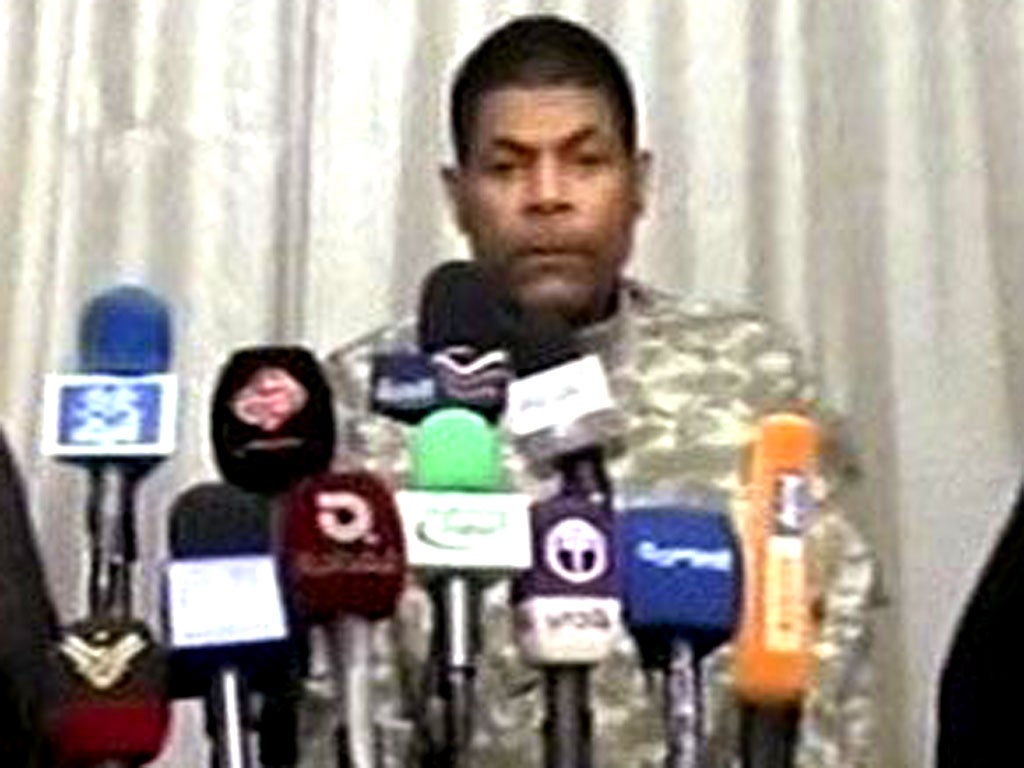Captors free former US soldier – but no one knew he was missing
Mystery surrounds the release of a man who had returned to Iraq to start a business

Your support helps us to tell the story
From reproductive rights to climate change to Big Tech, The Independent is on the ground when the story is developing. Whether it's investigating the financials of Elon Musk's pro-Trump PAC or producing our latest documentary, 'The A Word', which shines a light on the American women fighting for reproductive rights, we know how important it is to parse out the facts from the messaging.
At such a critical moment in US history, we need reporters on the ground. Your donation allows us to keep sending journalists to speak to both sides of the story.
The Independent is trusted by Americans across the entire political spectrum. And unlike many other quality news outlets, we choose not to lock Americans out of our reporting and analysis with paywalls. We believe quality journalism should be available to everyone, paid for by those who can afford it.
Your support makes all the difference.American diplomats are scrambling to piece together the story of a former soldier who was handed over to them at the weekend after nine months in captivity in Iraq – but who no one seemed to know had been kidnapped. Rand Michael Hultz appeared to have returned to Baghdad after his tour of duty and tried to set himself up as a businessman and entrepreneur in what he called an "emerging market". But a trail of breadcrumbs left by him across the internet and in the Iraqi media has left investigators with more questions than answers.
Mr Hultz, referred to in some reports as Randy Michaels, was handed over first to United Nations officials and then to the US embassy, which refused to say anything more than that he was an American citizen.
A paramilitary group loyal to the Shia cleric Moqtada al-Sadr said it was handing him back as a gesture of goodwill following the withdrawal of US troops from Iraq. It claimed he was a soldier, and the video of his release showed him wearing a uniform, albeit without insignia.
Maha al-Douri, a Sadrist member of the Iraqi parliament, and the deputy parliamentary speaker appeared with Mr Hultz at the handover, which was filmed and shown to journalists at a hastily convened press conference.
Mr Hultz said he had been abducted in June last year by the Promised Day Brigades, a remnant of the Mehdi Army, which rose up against the US invasion in the years after the 2003 war. He said he had been held at several locations through his captivity, and that no money or prisoner exchange had taken place to secure his release.
US officials expressed surprise and confusion at the developments, and said Mr Hultz's name did not match that of any of the missing contractors in the country. The body of the last unaccounted-for American soldier was handed over last year.
His unexpected public appearance on Saturday immediately raised questions about what exactly he was doing in Iraq. Mr Hultz is listed in a number of online business directories as the contact for Sanna Al Kassir, or SAK, an "import, export and trading company" which describes itself as "the first company to provide eyes and ears on the ground in Baghdad, outside of the restrictive aspects of the fortified compounds, providing realtime business information in support of our clients". SAK claimed to be able to trade sulphur, cement, rice and vegetable oil, among other commodities.
In a 2010 interview with the television station al-Hurra, Mr Hultz described himself as the chief economic officer of SAK Commodities.
A 2008 radio news story featured Mr Hultz as one of an emerging class of Western entrepreneurs in Iraq. In the piece, aired on US National Public Radio, he said he had returned to Baghdad to help oversee investments for a venture he called the Iraq Fund. And in 2010, he was photographed meeting senior politicians, including the former Prime Minister Iyad Allawi, reportedly to discuss reconstruction.
Mr Hultz's ex-wife, Kendra Hultz, told the New York Times she knew he was in Iraq but had little contact with him and did not know what he was doing. "He just disappeared," she said.
In his stilted press conference, Mr Hultz said: "It was explained to me that this is a gift to me, my family and the American people who opposed the war. Without a doubt I and my family thank Saeed Moqtada al-Sadr."
Join our commenting forum
Join thought-provoking conversations, follow other Independent readers and see their replies
Comments